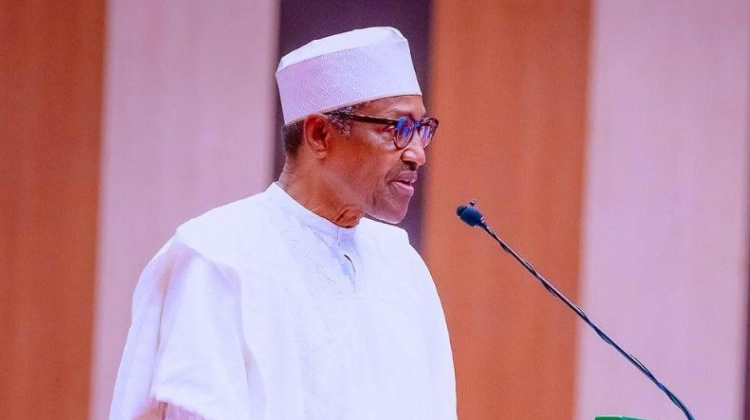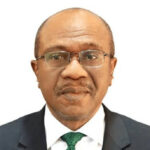
The President, Major General Muhammadu Buhari (retd.), on Tuesday, said the auctioning of the 5G spectrum alone generated $547m.
He also lauded the contributions of the digital economy in driving growth, creating employment and generating 594 per cent of its revenue target for 2019, saying it has opened more avenues for development funding.
“Our independent analysts adjudged the digital economy sector to have generated 594 per cent of its revenue target from the 2019 baseline. This is very commendable. As part of these unprecedented achievements, the sector generated over $547m from the auctioning of the 5G spectrum alone,’’ Buhari said when he commissioned the National Shared Services Centre in Abuja.
This is according to a statement signed by the Senior Special Assistant to the President on Media and Publicity, Garba Shehu, titled ‘President Buhari applauds ICT sector for driving growth, says $547m generated from 5G auction.’
Describing it as a “one-stop-shop for Ministries, Departments and Agencies to interface with citizens”, Buhari said the National Shared Services Centre would provide services that are swift, secure and seamless.
He revealed that the Information and Communications Technology Sector accelerated the diversification of the economy and the Q2 Gross Domestic Product Report by the National Bureau of Statistics showed an 18.44 per cent contribution to the Gross Domestic Product, about thrice the 6.33% contribution of the oil sector in the same quarter.
“As part of our efforts to expand our digital infrastructure, we increased our 4G base stations from 13,823 to 36,751 from August 2019 to date, and this has increased the percentage of 4G coverage across the country from 23 percent to 77.52 percent, also from August 2019 to date. We have also followed this up with roll-out of 5G services.
“It is noteworthy that the digital economy sector has excelled in generating revenue for the government. In particular, at the Ministerial Retreat that I chaired from the 18th to 19th of October 2022, our independent analysts adjudged the digital economy sector to have generated 594 percent of its revenue target from the 2019 baseline.
“This is very commendable. As part of these unprecedented achievements, the sector generated over $547m from the auctioning of the 5G spectrum alone,’’ said the President.
Buhari noted that the digital economy ensured continuity in governance during the imposed restrictions from the COVID-19 pandemic.
“We approved the National Policy on Virtual Engagements for Federal Public Institutions on the October 14, 2020 and this enabled us to formalise government online meetings. As such, statutory meetings like the Federal Executive Council meetings, Council of State meetings and other meetings can now take place online, effectively and legally.
“Our administration’s commitment to promoting data promotion and privacy is receiving praise across the world and we have increased our digital identity enrolments from 39 million in October 2020 to about 92 million today.”
He said the increase of about 63 million in about two years had led to several requests for partnership from countries within and outside Africa.
“I also approved the establishment of the Nigeria Data Protection Bureau on the 4th of February, 2022 to provide an institutional framework for data protection in Nigeria, in line with global best practices,” the President told the gathering of ICT experts and government officials.
He said a number of policies and programmes to enhance the productivity of the digital economy sector had been developed.
According to him, the National Policy on NIN-SIM integration has enhanced the integrity of the National Identification Number database. Also, the Nigerian Postal Service has been repositioned through the unbundling of its services to increase its efficiency and make it more viable as a revenue generating agency of government, he explained.
He also referenced the Nigeria Startup Bill signed into law on October 19, 2022, calling it a landmark legislation of his regime to “transform the pool of highly talented youth in Nigeria into a pool of highly innovative digital entrepreneurs.”
The President noted partnerships with leading global ICT companies to train Nigerians in cutting edge and high demand digital skills.
They include the training of five million Nigerians (a partnership with Microsoft Corporation) and the training of one million Nigerians in blockchain technologies, cybersecurity and data analytics, among others.
In his remarks, the Minister of Communication and Digital Economy, Prof. Isa Pantami, appreciated the President for his support for the digital economy, with turnovers in broadband/Internet penetration, skills acquisition for global competitiveness and infrastructure development, like the fiber optic cable, which was about 15,000kms in 2015, and increased to more than 60,000kms.
The Managing Director/Chief Executive Officer of the Galaxy Backbone, Prof. Muhammed Abubakar, said 400 MDAs were already connected to the National Shared Services Centre.
At the close of the event, two young Nigerians, Kalim Haruna, who developed a system called ‘Sharp-Sharp’ and Bashir Abubakar, founder of ‘Africa First’, were honoured by President Buhari for their creativity and ingenuity, and showcasing the nation’s talent in a global ICT conference.




